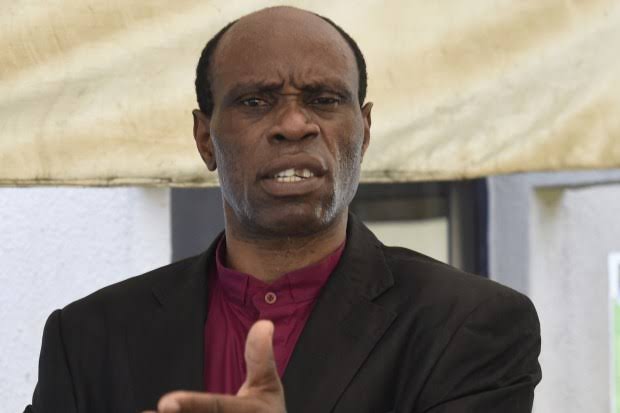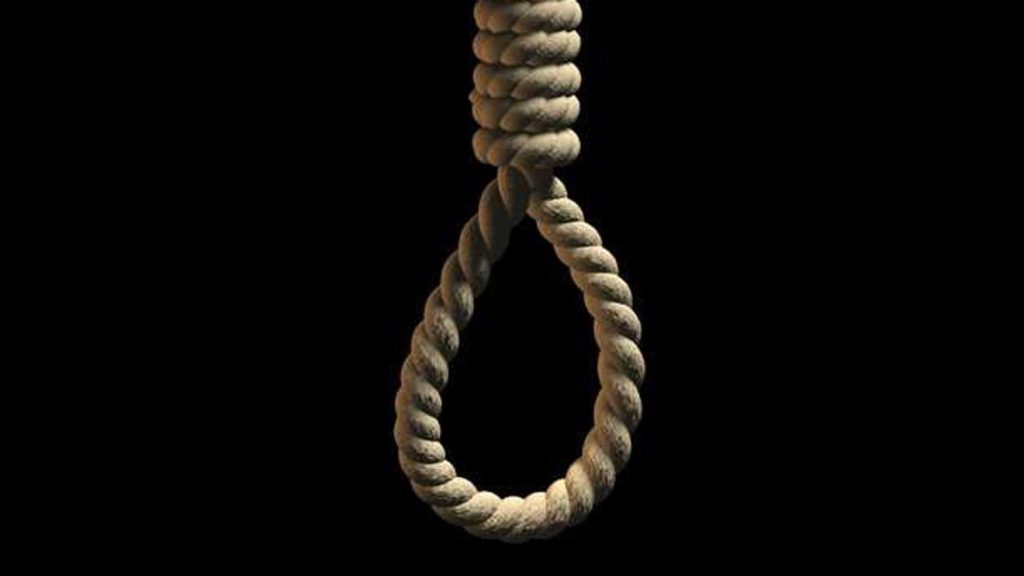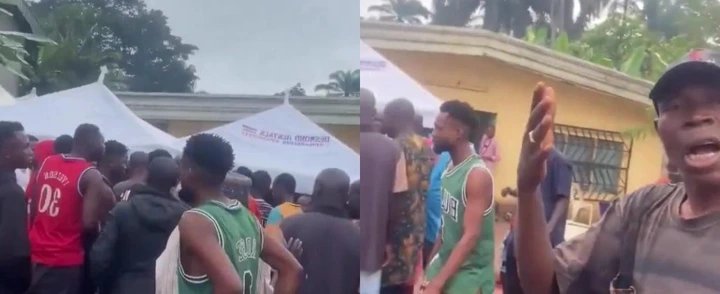Interviews
Tafawa Balewa Would Be Disappointed With Nigeria’s Failure ~ Usman Balewa
Usman Abubakar Tafawa Balewa is the 60-year-old son of Nigeria’s first Prime Minister, the late Sir Abubakar Tafawa Balewa. Usman retired from the Nigerian Maritime Administration and Safety Agency in 2018 and is currently a farmer and businessman. In this interview with ARMSTRONG BAKAM, he speaks on Nigeria at 60, issues of insecurity and unity, among others
What do you think about the state of the nation as Nigeria celebrates its 60th independence anniversary?
The government has tried its best but if you’ve studied Nigeria very well, you’ll know that there have been forces pulling the country apart and trying to tear it since Nigeria got its independence. It has just come to this position. I think they are doing their best, but the insecurity situation is getting out of hand and you know when people are dying; they complain that things are really bad. But you’ll have to sit down with the security agents to know the threat that Nigeria is facing. If you look at the terrorism in Borno State, it started as a small thing, but look at what has happened within a few years. These insurgents have come out with sophisticated weapons and they are even ready to take on the Nigerian Army. If you look at the banditry in the North-West, it just mushroomed overnight.
Usman Abubakar Tafawa Balewa
What was Nigeria like while you were growing up?
Nigeria was beautiful. I remember that electricity was stable and things were affordable. You could travel from here (Bauchi) to Lagos at night; you wouldn’t be afraid of anything. Many people even travelled at night. People were going on trains. I know some people who were getting paid via the post office then, but all these are gone now. I left Nigeria in 1982 for the United States of America. I was shocked when I came back because most of the things I knew were working had collapsed. The bad roads did not start with this administration; they started long before it and haven’t been addressed.
What are the striking changes between Nigeria of today and the country during your father’s time?
The question is about leadership. The leaders of the First Republic, first and foremost, had the interest of the country at heart because, before independence was given, they were able to sit down together under the supervision of the British and agree on a constitution for Nigeria. We were just coming together then and that there was trade that was going on between the North and the South; the various tribes of Nigeria. But when we came out of the same umbrella, the masses continued with their trade and the politicians came in looking for votes, so they tried to divide the people but it wasn’t as bad as it is now. People were doing tribal politics, but at least they had their national representatives and they always came together when things were coming to a head. The problems started after the January 1966 coup because people felt it was a tribal thing and politicians went to the locals and tried to influence them, so Nigeria started declining. Tribal politics played itself up again; then the political parties came. It was regional then. There were no states but now there are tribal sentiments.
Even in the Second Republic, people were at least decent. People tried to come together but, after that, the politics became something else: ‘If I don’t get it, let everybody lose it.’ That was how Nigeria got to this state.
What do you think were the dreams of your father and other founding fathers like him?
You know they were trained by the British. There was seriousness; they saw the task of nation-building as the priority. My father didn’t sleep; he had very little sleep because he always had a late night with his circle of advisers, ministers and the others as they tried to get Nigeria working. Those who are old enough to have experienced the First Republic would know that these people were committed to this country. They were really committed.
If your father was to witness the situation in Nigeria now, what do you think would be his reaction?
I think he would go crazy because the stage we are in cannot be explained, seriously. You could not have imagined it. Just listen to what has been going on. Somebody will steal N1bn, for what? What are you going to do with N1bn? That’s how deep the rot has gone. In the ministries, they used to have what I think was called ‘end of year.’ They would just sit down and divide the monies that were left among themselves; everybody would take their share. They would keep the money; they wouldn’t do the work. So, how could the country move again?
Your father was said to have lived a decent life and, after he died, he was said to have just one house and a piece of land. But today’s politicians are known to amass wealth. What are your thoughts on that?
If you look around you, you will find somebody who had nothing when they went into politics; soon, they have accumulated wealth that didn’t come from their salary or allowances. Something is wrong somewhere. I am very worried about that because my children are coming up. What kind of country are they going to live in? There are bad roads everywhere. If you travel, for instance, from here to Kano, just don’t speed. If you do, you will die because of the potholes on the road and nobody is doing anything about it. These roads have been deteriorating for some time and nobody has done anything about it. If you are going to Abuja through Jos, you’ll almost faint if you get to a pothole.
How happy and hopeful was your father when we got independence?
He was elated. When the crisis started because of tribal politics, my father broke down and cried. If you asked him, he would say it was because if they, the founding fathers, could not hold Nigeria together, then what would happen after them? And it has continued. But people don’t learn. If you talk about my father, the late Chief Obafemi Awolowo, Chief Nnamdi Azikiwe, Ozumba Mbadiwe and other politicians, where are they now? Even those that killed some of them, where are they now? All of them will leave this world. Where is Chukwuemeka Ojukwu now? Gone.
Where did they see Nigeria in the future at that time?
They had hopes because they had developmental plans and were implementing them religiously but, along the way, things just stopped moving. You have to follow up because if you are making progress, at least, the people are supposed to see changes.
How would you describe the insecurity in the country – killings in Southern Kaduna, insurgency in the North-East, kidnappings across the country, banditry in the North Central and North-West, etc?
I told you that these things started little by little and, to my little understanding and in my own opinion, suddenly, politicians came in. If you look at herdsmen and farmers’ crises, it used to be with bows and arrows and machetes. There’s no society where there will be herdsmen and farmers and there won’t be problems. But suddenly, modern arms were introduced and if you give people AK-47 rifles, you know what’s going to happen. They can wipe out a whole village in minutes, before it is controlled. The local chiefs, emirs and others tried to control it but now, all the traditional institutions are not there. A local government area chairman will not live in his area. In Bauchi, for instance, if a crisis breaks out in one remote local government area, you will find out that he won’t be there and his secretary will also not be there. They will be somewhere in Bauchi or even far away from Bauchi. How can you contain a crisis that way? So, it metamorphosed. If one party is aggrieved and it is not addressed, they will seek revenge; that’s how things got worse.
You live in the North. Have you ever had any experience yourself that frightened you?
I would say yes. There was a sports festival in Bauchi when there was a crisis. I was nearly killed because we were going to the stadium and, as young people; I was cruising in my friend’s car. We didn’t know a crisis had started, so we were nearly killed because we went to the wrong camp. I didn’t sleep at home that night because there was no way we could get home. Another time was when I was travelling to Jos and a crisis erupted. I was with my wife, and a commercial motorcyclist (okada man) saved me by showing me the road to take. That okada man was a Christian. He said we should follow him because he saw my wife with a hijab. He asked me if I was a Muslim and I said yes. He said we shouldn’t go farther because it was a Christian axis. He took me through that road and told me to drive very fast to the place we were going and that was what saved us that day. I will never forget that because I was very scared; I could see places in flames and hear gunshots.
What do you think of your father’s legacy in the light of the current state of the country?
They left a beautiful legacy but they didn’t complete the work they started. Everybody in Nigeria during the First Republic or even up to the 1980s would tell you that people were happy. People had employment. Northern Nigeria at that time would even provide transportation to and from school. They would pay you allowances and pocket money. They could even provide for your feeding. Somebody showed me a meal ticket for Ahmadu Bello University, Zaria; it was a whole meal with a whole chicken in it for Sundays or so. As students, upon your graduation, your state government would tell you not to go anywhere because they had employment for you. When you came out, they would give you employment, a vehicle and a furnished three-bedroom flat. I know some of those houses that are still here till today in Bauchi. We, the younger ones, were motivated. We wanted to finish school and start working. But now, I would visit Zaria sometimes and see students looking haggard. There was a time students were going to Britain for holidays. They would save from their allowances. Some would starve themselves. They would go there just for their holiday, do some shopping and return to Nigeria. Gone are those days.
No, I can show you some videos where people from the core North have come out publicly to abuse him (President Buhari). Some of them are even from Katsina. There are people that do that but because of the decorum in the North; the old system is such that you don’t come out and criticise. You go through some channels. There is respect for elders but it has gone down; some of them can even hit you on the chest. I dare not see an elder carrying a bag and not collect it from him, let alone criticise him in public. But it happens in the North. There was the Northern Elements Progressive Union that metamorphosed into the People’s Redemption Party. Few radicals from Benue, Plateau or even Southern Kaduna have come out to criticise a policy that they felt was an injustice. Now, the scenario is that some people are exploiting these grievances and providing people with weapons to cause trouble. When some of these politicians have resolved their issues, you would never see them again and they would have caused trouble for people.
In the days of your father, we had federalism with each region managing their affairs and some people have been calling for restructuring to return the structure of the country to that, what is your view?
Restructuring in the sense of what some people are saying cannot be possible now. This is because the regions have been split into states. Even when they were just three, North, East and West, there were agitations and Mid-West was created. After that, there were agitations from places like Benue, Middle Belt and so on and it has continued till today, except we have another conference. For some people, what they mean by restructuring is that all the powers of the Federal Government should be taken away to allow the states to have their own security, which is not possible, because the Federal Government has to be responsible for security. It is very good to allow every state and region to control its own resources; I support that 100 per cent. As for restructuring the economy, I am for that; they will be giving the government at the centre royalties. We are not mature enough for every region to control its own security. Even in those days in the First Republic, there was a federal police. The army was strictly under the federation.
But some argue that the security under the Federal Government has not fared well. Don’t you think the states will do better with their own infrastructure?
The security under the Federal Government has not fared very well because the head of a security agency will just take the entire money and put it in his pocket, simple. I don’t know if it is true that the last time they bought weapons for the army was during the administration of the late President Umaru Yar’Adua. But before, it was neglected. There was a time the Nigerian Air Force was grounded because they said they attempted a coup. So, with these kinds of hiccups and the destruction of esprit de corps in the army, things started to go awry. In the First Republic, the army was in disarray because some people took sides and this has continued.
When your father was in office, he had people from other regions working very closely with him but now, Nigerians, especially those in the South, feel the appointments of heads of security agencies are skewed to favour the North. What do you think about that?
During my father’s time, all the heads of defence establishments were from the East. The Chief of Army Staff, police boss, and others were easterners. Did that stop a coup? It didn’t. Go and check how it was during the administration of the immediate past government. Did it stop the deterioration? It didn’t. Changing the heads of the security agencies is not a remedy for what’s going on. They are not the ones doing the fighting.
What is the remedy?
It is to equip and train the security forces. Before, the Nigerian Army used to run away. You can’t give me an AK-47 with two magazines and say I should face an anti-aircraft gun. It cannot work.
Interviews
“Football under siege: How Insecurity, poor investment threaten the beautiful game in Kwara North”
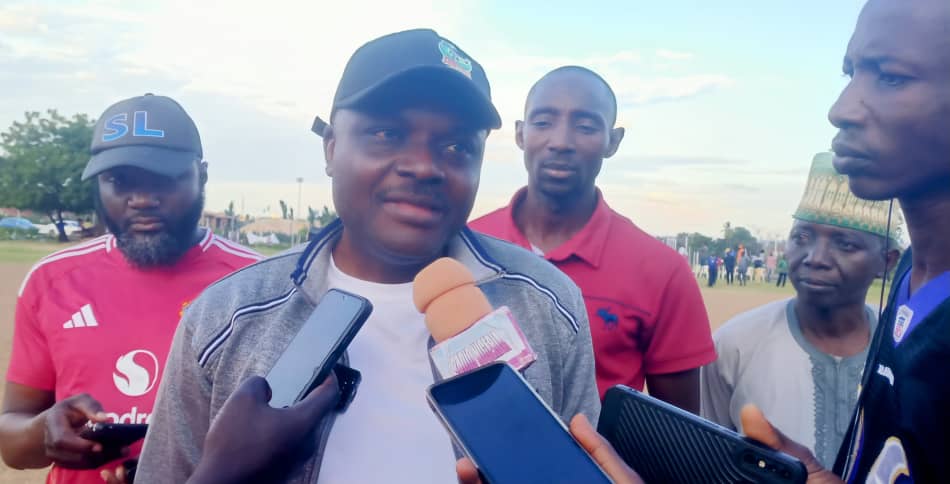
In this short interview, Dr. Ndanusa, a director at Aidu Football Academy (AFA), Lafiagi, speaks with our correspondent on the struggles of running a private football academy in a region ravaged by banditry, and the broader challenges of managing football without government support. AFA players wore black armbands during their friendly against NPFL side, Kwara United, in Ilorin, as a show of solidarity for communities in Kwara North under siege.
AFA only launched formally in February. How has the journey been so far?
What we did in February was an unveiling. The academy had actually started long before that. After the launch, we set up a boot camp where we picked some of the best talents to expose them to the wider world of football. Over the last six months, our boys have had several encounters — some are currently in Ethiopia trying out with clubs, while others are preparing to move to Doha, Qatar. Those at home continue to engage local teams, and coming to Ilorin feels like homecoming since Lafiagi is part of Kwara. But beyond football, our presence here is symbolic — our home base in Kwara North is bleeding due to insecurity. That’s why our boys wore black armbands: a cry for solidarity. Government is doing its best, but security is everyone’s problem.
What does it mean to run a football academy from an insecure region like Lafiagi?
Dr. Ndanusa: It is both emotional and challenging. Every day, we battle the reality that while we try to raise young men through football, our community is under siege by armed bandits. Players come to training after hearing gunshots the previous night. Families are displaced, and yet we must carry on. It shows that football is more than sport — it is a beacon of hope. Our boys are saying through football that Lafiagi deserves peace.
How tough is it for the private sector to invest in football in Nigeria?
Dr. Ndanusa: Very tough. It requires money, time, and enormous resources — things one man alone cannot shoulder. Unfortunately, unlike government-backed clubs such as Kwara United, private academies struggle without institutional support. People understand football’s value but they have not directly benefited from it, so they shy away from investing. Until more investors come in, academies like ours will remain at the mercy of passion and sacrifice.
What lessons do you think government and stakeholders can take from AFA’s effort?
That football can be a force for good. Beyond winning trophies, it can rebuild broken communities, unite people, and take young people off the streets. Our academy is proof — even in a conflict zone, young men can choose football over crime if given the chance. What we need is more investment, collaboration, and deliberate policies that support private football academies. With security guaranteed and stakeholders involved, Nigeria can produce not just players but true ambassadors of peace and development.
Interviews
Obasanjo Advocates for Accountability in the Fight Against Corruption in Nigeria
Former Nigerian President Chief Olusegun Obasanjo has emphasized that the fight against corruption must begin with accountability among top government officials.
Speaking during an interactive Zoom session titled “Boiling Point Arena,” Obasanjo highlighted the importance of leadership in combating corruption. The session was hosted by a private radio station in Abeokuta, Ogun State.
Obasanjo stated, “The best way to fight corruption begins at the top; therefore, that is where we must focus our efforts.”
He stressed that leaders must lead by example. This sets a critical precedent for the entire nation, demonstrating a genuine commitment to transparency and integrity.
The interactive session focused on Obasanjo’s achievements in government and his assessment of Nigeria’s current state. He described corruption as “hydra-headed,” noting its deep roots in Nigerian society. This pervasive issue requires relentless effort to combat effectively.
Using an analogy from a former Sultan of Sokoto, Obasanjo compared corruption to a “babariga,” a flowing traditional attire. He explained, “If you are folding it on one side, it’s falling apart on the other side.” This illustrates how corruption can worsen if not addressed comprehensively.
He added, “When you carry it on both sides, you cannot hold your hands up, and as soon as you put your hands down, it’s falling apart. That’s corruption.”
Obasanjo emphasized that fighting corruption is not a one-time effort. It is a continuous endeavor requiring sustained commitment across successive administrations. “Corruption is not a one-day affair.
“It’s not a one-regime affair. It must be consistent, continual, and a daily affair,” he said. He warned that a single regime’s inaction may allow corruption to spread uncontrollably.
The former president urged officials to reform the recruitment and appointment of leaders to public office. He advocated for merit-based political appointments, not those based on political affiliations or tribal considerations.
As reported, Obasanjo argued that leaders must possess competence and integrity to effectively serve the nation.
Discussing the source of leadership, Obasanjo asserted that not all leaders receive divine appointment; some arise from personal ambition or malevolent forces.
Addressing Corruption
He stated, “God prepares most leaders and places them in their roles,” suggesting that this divine selection boosts a nation’s chances of success.
However, he recognized that evil influences can also infiltrate leadership. “Satan is real and has power. Satan can create a leader,” highlighting the potential for evil forces to influence those in positions of power.
He referenced Job from the Bible, explaining how Satan challenged God’s righteousness. He emphasized that while Satan has no salvation, his influence should not be underestimated.
Obasanjo’s remarks highlight Nigeria’s need for a comprehensive approach to combat corruption, starting at the highest leadership levels.
He urged leaders to prioritize accountability and meritocracy, ensuring that governance serves the public good.
Concluding his address, the former president stressed that sustainable development comes from transparency, consistent action, and leadership grounded in accountability and divine purpose.
His call to action emphasizes the urgent need for reform in Nigeria’s political landscape.
Interviews
VIDEO: Air Peace CEO, Onyema blasts Sirika, asks Tinubu to dissolve Nigeria Air
The Chief Executive Officer of Air Peace, Chief Allen Onyema, has lambasted the former Minister of Aviation, Senator Hadi Sirika, over what he referred to as tissues of lies from the former Minister.
It could be recalled that Mr. Sirika, during an interview on Arise TV, tried to defend the allegations of fraud levelled against him in particular, and the federal government led by the former president, Alhaji Muhammadu Buhari, in general, over the national carrier, Nigeria Air.
Speaking Arise TV on Sunday, June 11, 2023, Sirika made spurious claims about Air Peace, which is today regarded as Nigeria’s foremost airline.
In his bid to denigrate Air Peace while praising Ethiopian Airline, Sirika stated that the airline leased ‘two’ Boeing 777 aircraft on a monthly lease fee of $250,000, parked the aircraft for several months and incurred losses of $19 million while all the aircraft engines and landing gears became due for replacement.
He then asked: “Who does that?” then added that Ethiopian Airlines would never do that.
Secondly, Sirika said the airline stopped flying to Dubai because ‘we lack capacity’. This is another stark lie.
Read Air Peace’s press release debunking Sirika’s “lies”, signed by the Chief Operating Officer of Air Peace, Mrs. Toyin Olajide, here.
Not satisfied with the press release, Chief Onyema appeared in person to further debunk Sirika’s lies, asking President Bola Ahmed ‘Tinubu to dissolve the charade called ‘Nigeria Air’.’
According to him, the current Nigerian government should dissolve Nigeria Air and work with Air Peace to be the Flag Carrier as his airline deserves it.
Speaking on Arise News on Wednesday, CEO of Air Peace averred that the former Aviation Minister, Sirika, ought to be in jail and not granting interviews.
Onyema recalled that he has done so much for this country, hence has to come on air and defend his credibility and reputation of his company.
He even demanded for more time as he has a lot to say about the corruption and criminality going on in this country.
As an ordinary citizen, he reminded Sirika that he has done more for Nigeria and Nigerians than the so-called politicians, only for the Nigerian government to deny Air Peace when it applied to be given slots to ply the UK route.
He noted that what the government should do is to support the local airlines in Nigeria, offer the airlines grants, and possibly deregulate the aviation industry as it will create more jobs and uplift the economy.
Watch the Arise News interview below:
—
©Copyright 2023 News Band
(If you would like to receive CURRENT NEWS updates from News Band on WhatsApp, or Telegram, or wish to send eyewitness accounts/ reports/ articles, write to elstimmy@gmail.com and we will respond instantly. Follow us on twitter @News Band; like our Facebook page: News Band.)
Interviews
June 12: How Tinubu can fulfil Abiola’s dreams for Nigeria – Gani Adams
Aareonakakanfo of Yoruba land, Iba Gani Adams on Monday, urged President Bola Tinubu to fulfill the dreams of a prosperous Nigeria, saying the late MKO Abiola’s mandate stands for justice, freedom, equity, liberty, and sustainability of democratic tenets.
Adams said this at the 30th anniversary of the June 12 1993 in Ogba, Lagos.
He stated that the death of the late MKO was not in vain because democracy has come to stay.
According to him, though there are challenges that have threatened the foundation of this democracy, things could be better with proper approach.
He said: “We cannot achieve much if our democracy is tied to the 1999 constitution that we are using presently in Nigeria.
The 1979 and 1999 constitutions are tools that the military imposed on us to preserve their atrocities.
“And the constitutions have always remained the bane of Nigeria.That is why we are where we are at the moment.
“Unless we embrace regionalism, and let the federating unit develop at their own pace, Nigeria may find it very difficult to realize its lofty dreams.
“With a new administration in power, there is need for President Bola Tinubu to come up with policy direction that has human face.’
Interviews
Fraud uncovered: Hundeyin makes case for ‘Nigeria Air that never took off’ [updated]

Ace journalist, Mr. David Hundeyin, was on News Central TV, Thursday morning to break down the Nigeria Air fraud, allegedly perpetrated by the former Minister of Aviation, Mr. Hadi Sirika.

Ace journalist David Hundeyin
Speaking, Mr. Hundeyin recounted how he broke the story of the fraudulent aircraft display on May 26.
Watch the video of the interview below:
In the meantime, the Nigerian legislature has stated that departing President Muhammadu Buhari created a fake airline as his final act in office.
President Buhari managed to arrange the flight of a lone aircraft bearing the livery of the nonexistent Nigeria Air before taking his final bow.
In an earlier development, the newly unveiled national carrier has revealed that it would soon make formal announcement for job opportunities as it continues to make preparations for commencement of commercial flights, which is projected to take place in the third quarter of this year.
Nigeria Air was unveiled on Friday, May 26, 2023, at the Nnamdi Azikiwe International Airport, Abuja, with a dual promise of quality service delivery and job creation, among others.
The job creation drive disclosure was contained in a document, entitled “Nigeria Air: The Journey So Far”, made available to newsmen in Abuja on Monday, by the airline’s media office.
According to the document, announcement for job opportunities would be made in key national newspapers for pilots, engineers, cabin crew and other positions.
The vacancy advertisements would also be posted on Nigeria Air website and social media platforms, as revealed by the document. Read more.
—
©Copyright 2023 News Band
(If you would like to receive CURRENT NEWS updates from News Band on WhatsApp, or Telegram, or wish to send eyewitness accounts/ reports/ articles, write to elstimmy@gmail.com and we will respond instantly. Follow us on twitter @News Band; like our Facebook page: News Band.)
-
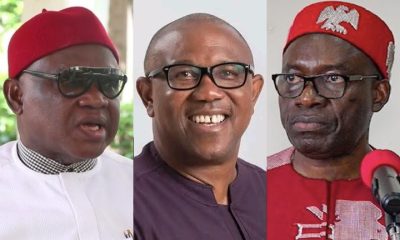
 Featured4 days ago
Featured4 days agoYour Attacks on Peter Obi Are Petty, Stop It! Chekwas Rebukes Soludo
-
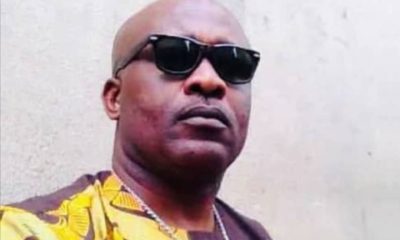
 News3 days ago
News3 days agoTension in Anambra community as senior police officer shoots kinsman dead
Colleagues, others try cover-up; victim's family fights back
-
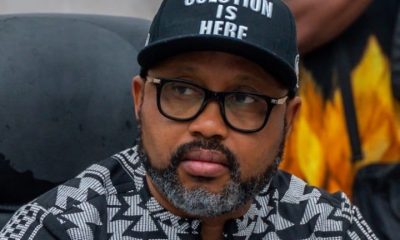
 News6 days ago
News6 days agoAnambra South Bye-Election: APC Chief Rescues Deputy Gov Caught In Vote Buying From Angry Youths
By Chuks Collins, Awka
-

 News5 days ago
News5 days agoNigerian visa applicants must provide 5-yr social media history — US embassy
-

 Celebrity/Entertainment20 hours ago
Celebrity/Entertainment20 hours agoHow Nigerian TikToker Geh Geh Made ₦45 Million in One Night
-
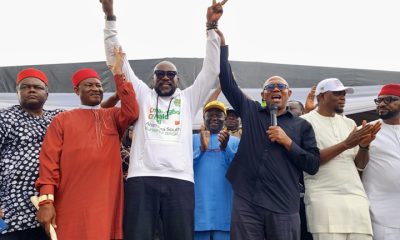
 Analysis6 days ago
Analysis6 days agoSystemic Sabotage: How APC, INEC Colluded To Undermine Amamgbo’s Senatorial Bid
By Arthur Ezechukwu
-

 News3 days ago
News3 days agoTerrorist Organisation: APC, PDP Members in US, UK, France Risk Deportation
-

 Celebrity/Entertainment5 days ago
Celebrity/Entertainment5 days agoWhy single mothers can’t raise boys into proper men — Jim Iyke
-

 News6 days ago
News6 days agoBREAKING: Troops arrest Nigeria’s most wanted terror kingpin
-

 News2 days ago
News2 days agoVandal electrocuted while vandalizing Aba power infrastructure






